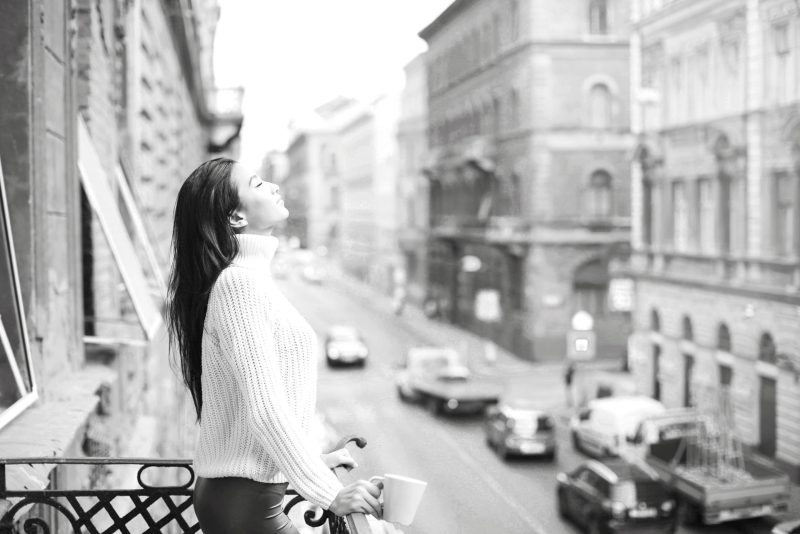The balcony used to be an integral part of a property. However, despite its ability to offer an exhilarating private outdoor space for residents, its use has been taken for granted in the past few decades.
Coincidentally, the COVID-19 pandemic has brandished a new meaning to the balcony as it helps facilitate the residents in maintaining their physical and mental stability during the home quarantine period. Several research suggests that there has been a shift in the role of the balcony during the pandemic.
Before the pandemic, the balcony acted as an almost forgotten feature of the property where people store their unused items or beat the dust off their rugs.
During the pandemic, however, it has been rediscovered as a space for socialization, entertainment, and physical activity. These dynamics then beg the question; is the balcony actually worth it? If yes, how can we use it effectively?
This article revisits the importance of balconies throughout the century while also discussing their relevance in modern times. This article will also explore its potential in relation to the value of the property after the event of COVID-19 pandemic.
What makes a balcony a balcony?
A balcony is a three-dimensional architectural model that exposes and extends the interior externally. It is located on the outer façade of a building’s structure that belongs to a private residence. A balcony serves as a bridge between the indoors and the outdoors in which light, wind, sight, and people can freely move in between. It is usually enclosed with railings or balustrades.
Throughout history, the balcony has served as a space where momentous events occurred. It is a place where The Pope blesses millions of believers; a stage where Shakespeare’s Romeo and Juliet took place; and a podium where Mandela announced the future of South Africa.
It has also been used for many purposes; such as a European military siege defense, a place for Arab Muslim women to observe the street without being seen, or a status symbol for the nobles.
In the modern days, the balcony serves as a place where people interact and socialize. It also provides spaces for relaxation, reading books, or eating meals. It serves as an interface for the household members to connect with the rest of the world. Nevertheless, modern technology has allowed people to access information indoors, pushing people deeper inside the house and minimizing the use of balconies.
Most balconies in urban society have been converted into storage for unused material, a place to hang washed clothes, or a dumpster to clean off dirty rugs.
There are also instances where the balcony is covered in plastic or glass to add more indoor space and protect the house from being seen by people from the outside. The significance of the balcony has since been diminished, until the COVID-19 pandemic.
Balconies during the COVID-19 pandemic
The balcony has regained its importance during the COVID-19 pandemic. The mandatory home quarantine period all around the world has confined people to the safety of their houses. This restriction paved the way for people to re-engage with the outside world through their balconies, doing activities that are never done before; such as aerobics, concerts, religious rituals, and various celebrations; and those activities have been made accessible through the internet for audiences all over the world.
The technology that was driving people away from the balcony — the internet — has encouraged them to return. The internet search for the word “balcony” has also increased significantly, especially during the peak of COVID-19 in each country. Due to house confinement, people saw the balcony as the only hope to be outside during the outbreak.
Moreover, the news portrayal of the balcony has also transitioned into a more positive nuance, where it is presented as a form of entertainment instead of an overlooked part of the property. The balcony has successfully been rebranded as the new interaction hub for the household.
Therefore, it is beneficial to revisit the benefits of the balcony and explore the potential it can give as the pandemic ends.
Revisiting the benefits of a balcony
The rebranding of the balcony as an interactive part of the property makes it worth the time to reassess its many benefits. There are several ‘old but gold’ practices that can be taken into consideration when having a balcony, in addition to added advantages that comes after the COVID-19 pandemic.
Tranquility
Having a balcony helps to give you peace of mind. Research asserted that people who live on a property without a balcony, terrace, or garden exhibit lower mental health than those who have. They may feel imprisoned and are prone to depressive symptoms.
Having a balcony will also impact your well-being and mental health. City apartment residents with balconies can alter their small balconies into a place of tranquility by adding a warm ambiance and small trees.
Sustainable lifestyle
The sudden wave of the pandemic had caused people to be isolated from nature. Although the law of social distancing has been dropped, having a few plants on the balcony is considered fortunate.
The balcony can be used as a gardening place, no matter the size. It will benefit you with fresh vegetables and increase the number of visits you make to connect with nature.
Besides, urban landscaping with balconies is essential and advantageous because it reduces climate change and improves the quality of life in highly populated cities.
Growing diverse plants on the balcony proved to have positive ecological and aesthetically pleasing effects. Balconies with good vegetation also gain from the flora’s shading which increases the house’s sustainability.
Source of natural lighting
An open-ended balcony is advantageous since it allows for adequate lighting. Compared to a typical window, a sizable balcony will help the room get more sunlight. The presence of natural light can boost your productivity, which benefits you greatly during work-from-home setup.
Natural light also helps to maintain a fresh atmosphere around the house. Furthermore, spending the morning with the sun also provides your body with the vitamin D it needs.
Extra space for activity
Another form of balcony usage after the pandemic is as an additional entertainment space. An organized balcony can be used more effectively. A clean balcony will please guests and family by establishing a cozy, private space to gather. A compact balcony with greenery and glittering lighting will foster intimacy.
By installing a bench and griller, a balcony can also serve as a place to hold large parties and entertain guests with food and drinks. Thus, having a balcony will give you more room to get creative.
Added property value
Several research has concluded that the perception of the importance of balconies has increased after the event of the COVID-19 pandemic, especially in countries that have a high number of urban apartment buildings.
The residents in Egypt, for example, realize that balconies are actually important after suffering from confinement during the pandemic.
Moreover, case studies in Iran, Portugal, and Poland also conclude that architects and designers should take a good accessible balcony design into consideration before making a property.
A balcony should be able to accommodate the residents’ needs for outside exposure in the coming pandemic or other related emergencies. This research implies that the balcony has been seen as a crucial part of a property. Its existence is seen as necessary and can add to the value of the property in the near future.
In conclusion
The balcony has been through its ups and downs. A space that was once an integral part of a property and history has been taken for granted until COVID-19 happened. The pandemic has brought a new meaning to the balcony and encouraged the residents to spend more time there. Therefore, there is an urgency to reassess its benefits and potential for the future, especially for those who are looking to buy a new property or looking to perk up their porch
If you would like to see more resources on outdoor living, check out the Home Organization Science Labs. The lab uses the research of the Institute for Life Management Science to produce courses, certifications, podcasts, videos, and other tools. Visit the Home Organization Science Labs today.
Photo by Andrea Piacquadio on Pexels


